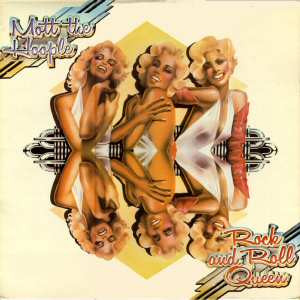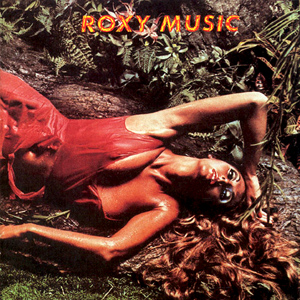The most beloved session pianist of the rock era, Nicky Hopkins continues to be ignored by that large building in Cleveland that has seen fit to memorialize Madonna and her ilk, and that’s simply a crime against humanity. We haven’t been shy about our admiration for him in this forum, as a look at all the entries tagged with his name can attest. He played on most of the early
Kinks records,
the first Who album and several others in the ‘70s, several Rolling Stones albums and singles and
even some tours, and while he contributed to only one Beatles track (that would be him on the bridge in
“Revolution”, folks) he was continually tapped for solo albums by each of them. Even
Paul got around to using him in the ‘80s.
From time to time he would actually join a band on a full-time basis, which is how he ended up in the Jeff Beck Group; when that imploded he took a chance on Sweet Thursday, which suffered from poor distribution. Having experienced San Francisco, he soon became a key element of albums with Jefferson Airplane (with whom he played at Woodstock), the Steve Miller Band, and Quicksilver Messenger Service; his masterful instrumental “Edward, The Mad Shirt Grinder” closes their Shady Grove album. Jerry Garcia even scored him for one of the many incarnations of his solo band for a time.
Always of fragile health, the excesses common to the ‘70s didn’t agree with him, making full-time touring a non-option. Still, he kept up with the session work, and that’s him you hear on such tracks as Joe Cocker’s “You Are So Beautiful”, “To All The Girls I’ve Loved Before” by Willie Nelson and Julio Iglesias, and of course, Cheech & Chong’s “Basketball Jones”. Once retro became a thing, he was in demand by alt-country bands (e.g. The Jayhawks) and power poppers (e.g. Matthew Sweet), and even hair metal refugees (e.g. Faster Pussycat, Izzy Stradlin). He died in 1994, leaving a legacy we’ve only touched on above, and a giant hole on albums recorded since.
Yet while he could seemingly elevate any recording he contributed to, his own songwriting was fairly limited. While he got writing credit for the occasional track, he managed only a handful of song-based albums under his own name. The most accessible one is 1973’s The Tin Man Was A Dreamer, recorded at Apple Studios with some famous friends helping out, and a listenable mix of straight rock with a few instrumentals.
The brief “Sundown In Mexico” is one such solo exercise, works as a prelude to “Waiting For The Band”, a clever metaphor. “Edward” gets a reprise from its earlier version, played even faster with George Harrison guitars and Bobby Keys on sax for the definitive recording. “Dolly” is a somewhat mawkish tribute to his wife, but it works thanks to the same touches he would soon apply to the Stones’ “Angie”. His voice was fairly weedy on its own, so for an extreme balance he used a hoarse belter named Jerry Williams to bolster some of the more rocking tracks, of which “Speed On” is one.
“The Dreamer” returns to mellow territory, particularly with strings from Elton John’s common arranger Del Newman, while “Banana Anna” goes completely the other direction with Jerry Williams again. “Lawyer’s Lament” is a backhanded compliment over a positively gorgeous backing that deserves better. “Shout It Out” seems to predict Billy Joel, and the double time chorus is always welcome. “Pig’s Boogie” provides a final blast of barrelhouse piano he could play better than anyone.
Outside of all the songs he made better, today there is only one decent biography, and a permanent memorial in the form of a park bench in West London. Nicky Hopkins deserves more than that—his own wing in the Rock and Roll Hall of Fame, for starters—but at least we can hear his music. Throw on The Tin Man Was A Dreamer in between Stones and Who and Lennon and Harrison albums and be thankful.
Nicky Hopkins The Tin Man Was A Dreamer (1973)—3


:format(jpeg):mode_rgb():quality(90)/discogs-images/R-4063089-1354002660-4396.jpeg.jpg)
:format(jpeg):mode_rgb():quality(90)/discogs-images/R-441340-1475570821-5157.jpeg.jpg)

:format(jpeg):mode_rgb():quality(40)/discogs-images/R-1370391-1384602901-5053.jpeg.jpg)
:format(jpeg):mode_rgb():quality(90)/discogs-images/R-1876429-1334242078.jpeg.jpg)


:format(jpeg):mode_rgb():quality(90)/discogs-images/R-1518330-1507461279-2511.jpeg.jpg)